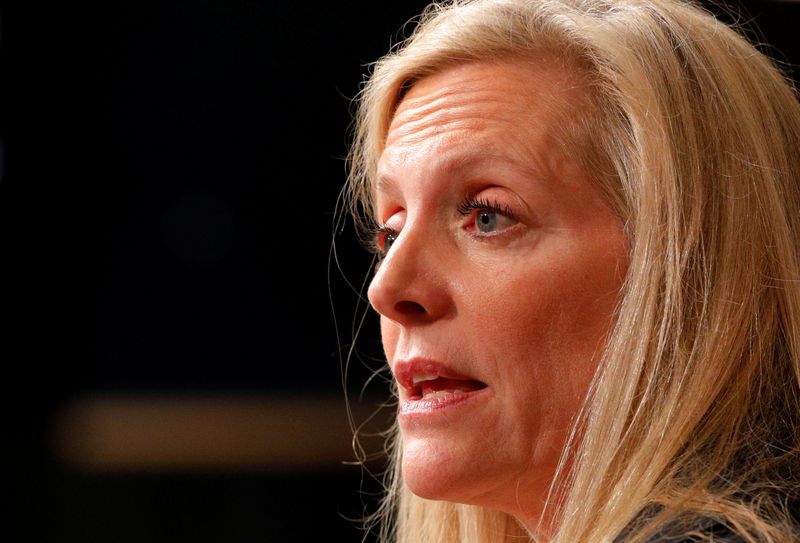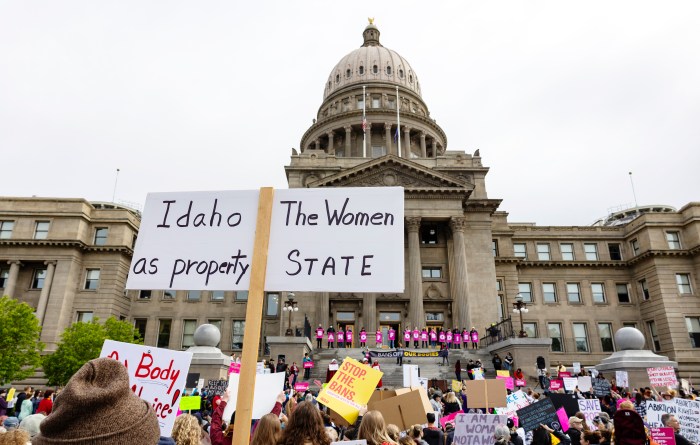WASHINGTON (Reuters) – The U.S. Federal Reserve will show “resolute patience” in waiting to meet its employment and inflation goals before pulling back on support for an economy still healing from the pandemic, Fed Governor Lael Brainard said on Tuesday.
Rather than using “preemptive” moves when unemployment falls and inflation show signs of rekindling, Brainard said any Fed action to tighten monetary policy is now “conditioned on employment and inflation outcomes.”
“This approach implies resolute patience while the gap closes between current conditions and the maximum-employment and average inflation outcomes,” the Fed has set for itself, Brainard said.
The language further cements the message Fed officials have given investors skeptical the central bank will ignore the price pressures expected to accumulate in coming months, and let the economy run “hot” in order to encourage more hiring.
That policy shift, discouraging the past practice of heading off inflation early, was approved last year but faces its first real test in a reopening economy buoyed by vaccines, easing restrictions, loose Fed policy, and ample federal fiscal spending.
Brainard, in comments to the National Association for Business Economics, said she shares the “considerably brighter economic outlook” of her colleagues, who as a group expect growth around 6.4% this year.
But in a question and answer session after her prepared remarks, Brainard pushed back firmly on questions about when the Fed might, for example, scale back the $120 billion it has been pumping into the economy each month through purchases of government bonds and government-backed securities.
“These are all good questions. They are not questions that are pertinent in the coming period,” she said. “Right now policy is very focused on providing the requisite amount of accommodation to support the labor market and inflation returning to full strength.”
The Fed intends to reduce those bond purchases before raising the target overnight interest rate from the current near-zero level, but even the start of any bond tapering is conditioned on “substantial further progress” in restoring the economy.
“We have been clear,” Brainard said, with Fed statements, policy guidance, and economic projections showing support for the economy will remain in place for years to come.
NO RATE HIKES FOR A WHILE
In projections issued at the Fed’s policy meeting last week officials at the median indicated they did not expect a rate increase before 2024.
Though some Fed officials, including Dallas Federal Reserve bank president Robert Kaplan, have said they anticipate rate hikes as early as next year, the Fed’s leadership has been adamant.
Chair Jerome Powell in congressional testimony on Tuesday reiterated the central bank is focused on the plight of those thrown from jobs during the pandemic and the need to support them until the health crisis is clear.
Asked by a Texas lawmaker what is the best thing that could be done to remove people from the unemployment rolls and into jobs, Powell replied tersely, “get vaccinated” so the economy can reopen.
Brainard noted the United States is not fully clear of pandemic risks – only about a quarter of the population has received a shot, and daily infections remain in the tens of thousands – and there are still 9.5 million jobs to reclaim.
Tightening policy too soon, Brainard said, “risks an unwarranted loss of opportunity for many of the most economically vulnerable Americans.”
Though prices are expected to rise this year, she said evidence so far does not indicate that inflation expectations are moving out of line with the Fed’s 2% target.
“It will take some time to achieve substantial further progress,” towards the inflation and employment goals, Brainard said. “By taking a patient approach based on outcomes rather than a preemptive approach based on the outlook, policy will be more effective.”
(Reporting by Howard Schneider; Editing by Andrea Ricci)



















